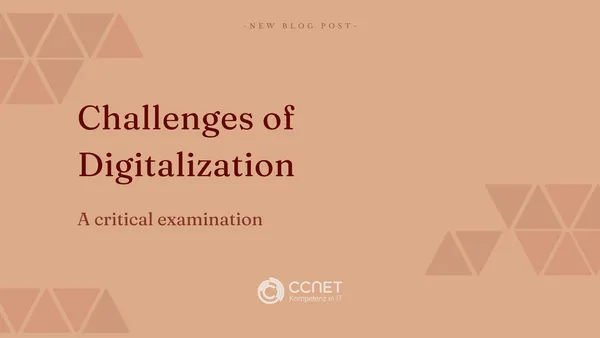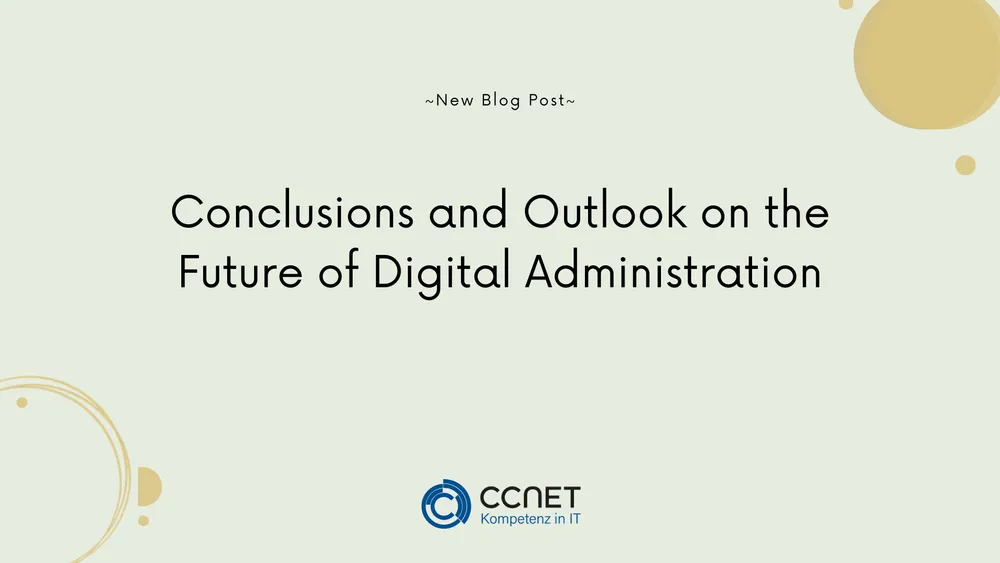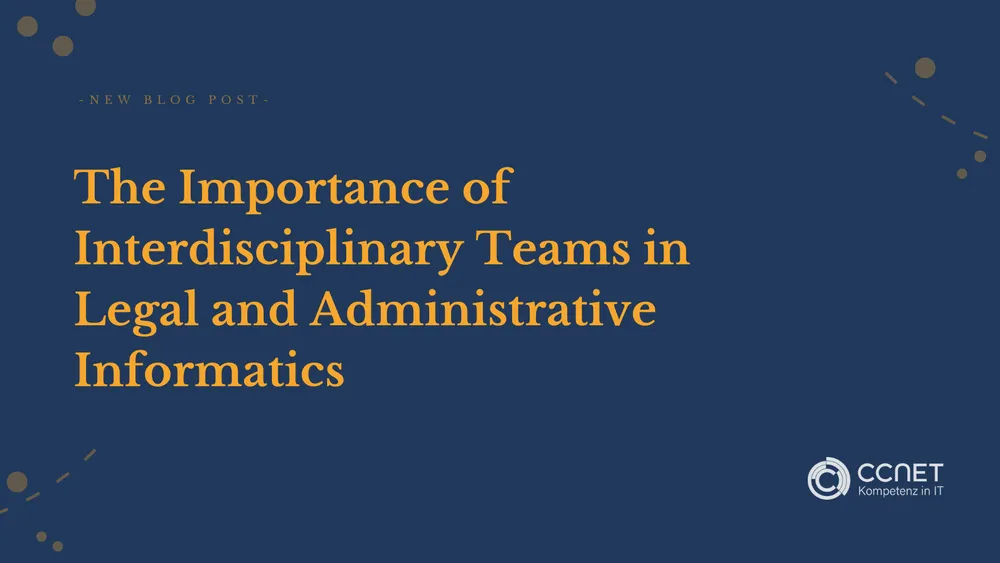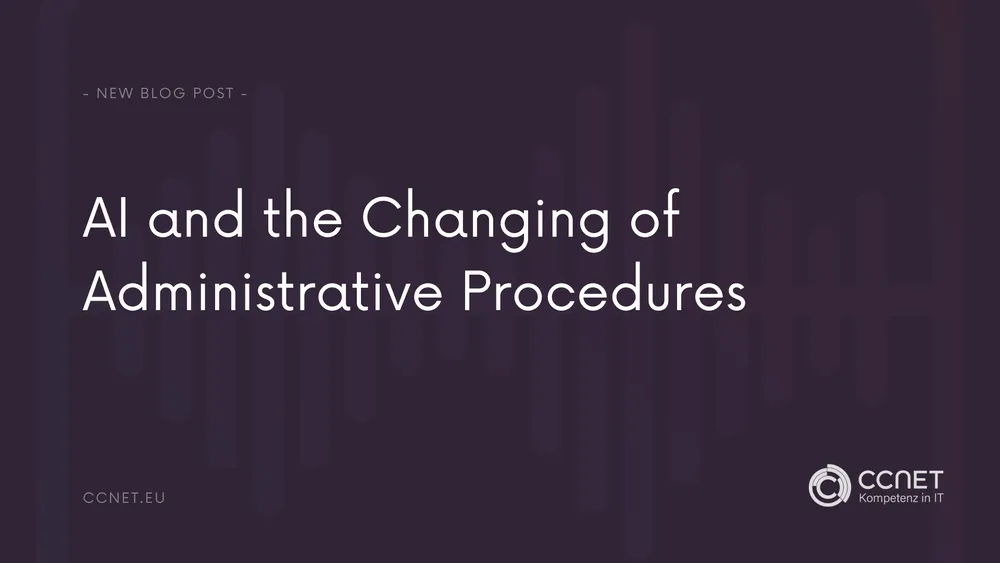
CCNet
Aug 5, 2024 • 2 min read

Challenges of Digitalization: A Critical Review
Digitalization has brought profound changes to all sectors, including public administration. While it has simplified many processes and increased efficiency, it also poses significant challenges, both technical and social as well as legal. It is therefore crucial to develop innovative solutions and strike a balanced approach between progress and security.
If you have any further questions, contact us: contact
Technological Challenges
One of the main issues in digitalization is ensuring cybersecurity. With the rise of digital services, the risk of cyberattacks, which can compromise sensitive data, also increases. Implementing robust security protocols is thus essential. This includes developing secure software, regularly updating systems, and training staff in cybersecurity. Additionally, continuous monitoring and adjustment of security measures to meet emerging threats are required.
Legal Challenges
Digitalization also raises legal questions, particularly regarding data protection and preserving citizens' rights. The General Data Protection Regulation (GDPR) in the European Union is an example of legal efforts to protect the privacy and personal data of citizens. National and international laws must be continuously adjusted to keep pace with rapidly evolving technologies and maintain data protection standards.
Social Challenges
The digital divide is one of the significant social challenges of digitalization. Not all population groups have equal access to digital technologies, which can lead to inequality in the use of public services. Targeted programs are needed to ensure all citizens can benefit from digital services, including access to affordable internet services and educational programs that impart digital skills and promote digital inclusion.
Impact on Administration
Digitalization also requires a redesign of administrative processes. Automated systems can improve efficiency, but they require careful oversight to prevent errors and abuse. Moreover, staff must be trained to use these new technologies to ensure proper and fair use. Continuous evaluation of these systems is essential to ensure their effectiveness and compliance with standards, with adjustments made as needed.
Collaboration and Governance
To effectively address the challenges of digitalization, strong collaboration is needed between different levels of government and between the public and private sectors. This includes developing shared standards, exchanging best practices, and co-funding technology initiatives. A coordinated approach maximizes resource utilization and promotes innovation by creating synergies and pooling resources.
Conclusion
While digitalization offers significant benefits for public administration and the citizens it serves, A Critical Review of the associated challenges cannot be underestimated. A proactive approach to addressing these challenges, encompassing technological, social, and legal aspects, is crucial for the success of digital transformation. It requires a comprehensive strategy and continuous adjustments to ensure that digital transformation meets the needs of all stakeholders effectively and promotes an inclusive society. Embracing emerging technologies, fostering digital literacy, and prioritizing data security are essential components of this proactive approach. Additionally, collaboration between government agencies, private sector partners, and civil society organizations is vital for navigating the complexities of digitalization and maximizing its potential for societal advancement. By adopting a proactive stance and implementing robust measures, public administrations can harness the full benefits of digital transformation while mitigating associated risks and ensuring equitable access to digital services for all members of society.
How do you see the government's role in overcoming the digital divide, and what measures do you think should take priority to ensure an inclusive digital future?


